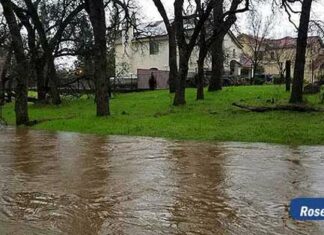California, the 7th largest economy in the world, has led other world powers through economic instability and innovation booms, and now faces an historic challenge governing in a time of climate change.
Uncertainty in rain patterns, wildfire activity, sea level rise and daily temperatures, has already begun. Each of these natural phenomena not only holds strong implications for agriculture, air quality, and electricity generation, but also for our real estate values and popular quality of life. To continue a major role in the global economy, California government must provide stability in our transportation, hospitals, water and sewage, as well as fire and emergency response.
Controlling Climate Change is to control Mother Nature. There are no guidebooks and little precedent for this new challenge. Developing plans to adapt is more realistic than trying to control Mother Nature. What works today for planning and buildings will not work when a rising ocean eroding shorelines also erodes the concept of permanent landscape. Property seaward of high tide is considered public property in our state, so as high tide keeps moving up to people’s homes do those homes become public property?
Adapting to climate impacts requires comprehensive solutions. Seawalls for example, merely push one city’s problems onto its neighbors. Overlapping local governing agencies with competing interests require California to counter gridlock by providing the best science on climate impact, standardized information and risk assessments tools sophisticated enough for the job in all areas of our state.
California’s landmark Global Warming Solutions Act of 2006 aims to reduce emissions and yet California contributes merely 1% toward emissions in the atmosphere. More significant and comprehensive to the protection of our economy and livelihood is managing the effect water and weather will have on California’s sea ports and airports. Flood protection becomes more significant brought on by wild swings from drought to excessive rain, combined with less snowpack – a trend that will continue.
Investing today’s tax dollars to protect tomorrow’s residents from climate impacts is not a trivial obstacle. Over the past 5 years, California’s governor has begun to focus resources more intently on adapting while the federal government is just beginning to address policy. The state Legislature has yet to engage in major adaptation policy.
The Climate Action Team, led by the California Natural Resources Agency, is moving to address longer, slower emerging problems. This team defined the problem but does not specify what can be done. Their research relies heavily on state government groups, but lacks input from local governments and citizens. After all, even though it is called Global Climate Change, it really is a local issue with solutions requiring regional cooperation and plans.
How will government institutions steer California through this new era of uncertainty? Unique to California, the Little Hoover Commission, a bipartisan watchdog group, lists Climate Change first on its 10 top challenges to governing California.
Economy & Efficiency Report five recommendations.
- The Governor should establish the best science on anticipated climate change impacts to help decision-makers accurately assess their risks.
- State government should incorporate climate risk assessment into everyday public planning and processes.
- The Legislature should expand the primary mission of the Strategic Growth Council beyond mitigation of greenhouse gas emissions to include an equal focus on adapting to the changes.
- State government should work with counties, private insurers, wild land stakeholders and the building industry to minimize wildfires and property damage by more aggressively enforcing defensible space requirements in state law.
- The Governor should work with key state agencies and other public and private coastal interests to clarify the impact of sea level rise. A legal framework should exist in advance of crisis to prevent litigation and enable stability as a rising ocean begins to condemn private property on the Pacific coastline.
This is the perfect time to let your representatives know what you think. Newly elected state Senators and Assembly members were recently sworn in with no aggressive legislation in place for this problem. Whether you agree with the Little Hoover Commission recommendations or not, let your opinion be known.
California Reservoirs, Snowpack & Drought
(21+ years strong)
Welcome to the brighter side!
Get in front of local customers! 24/7 (365)























